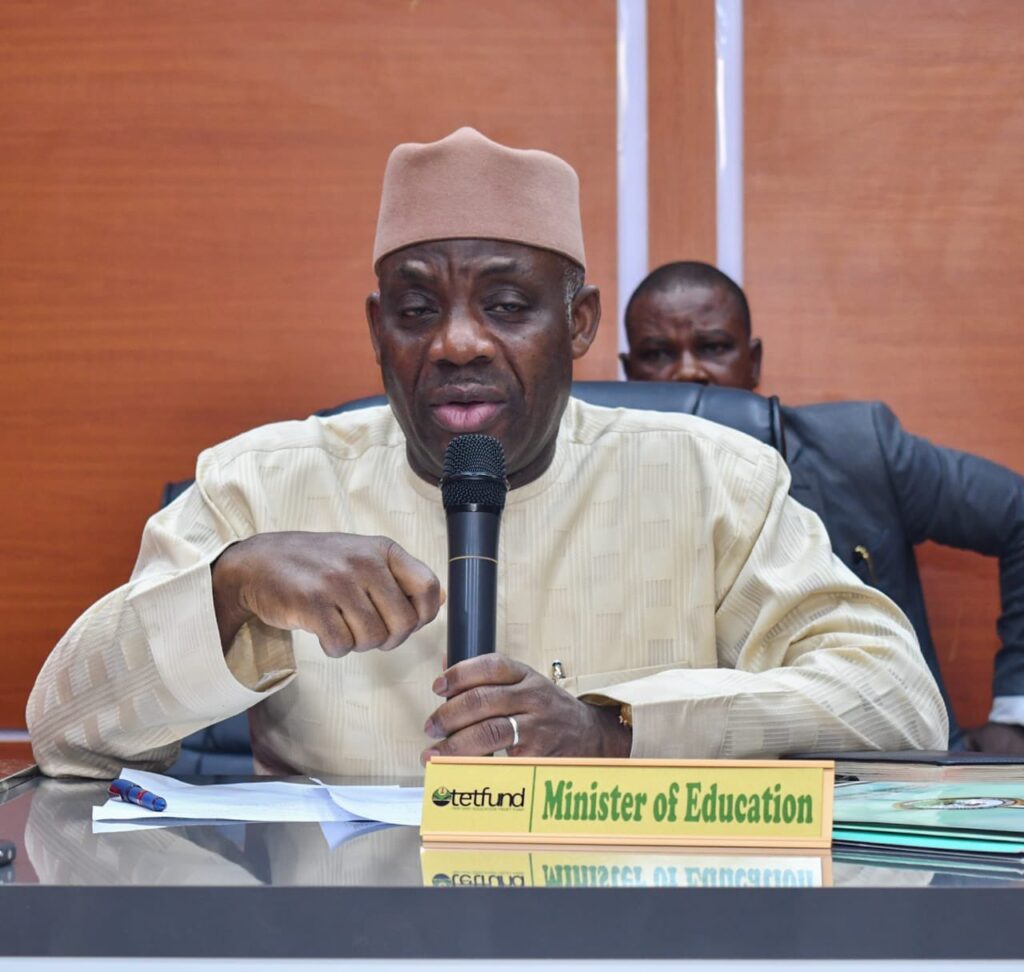
Chidimma Uchegbu – Abuja
The Minister of Education, Olatunji Alausa, has called for dialogue to resolve the lingering industrial action embarked upon by teachers in primary schools in the Federal Capital Territory administered by Chief Nyesom Wike.
Alausa made the call while acknowledging issues raised by the FCT chapter of the Nigeria Union of Teachers (NUT) which led to the strike.
The concerns relate to the implementation of the new national minimum wage for primary school teachers in the Federal Capital Territory.
According to a statement on Monday in Abuja by the ministry’s spokesperson, Folasade Boriowo, the minister called for dialogue, unity, and a swift resolution to the ongoing strike.
He emphasised the vital role teachers play as the backbone of Nigeria’s foundational education system.
Mr Alausa noted that the ministry had reviewed with concern the communiqué issued by the NUT FCT wing following its Emergency State Wing Standing Committee (SWSC) meeting held on March 22, 2025, in Gwagwalada, Abuja.
While the administration of LEA primary schools in the FCT falls under the jurisdiction of the six area councils and their respective Local Education Authorities (LEAs), the minister acknowledged the decentralised structure of governance.
He reaffirmed the federal ministry’s commitment to the welfare, dignity, and professional development of teachers at all levels.
Mr Alausa added that the ministry of the FCT, the Universal Basic Education Commission (UBEC), the Federal Ministry of Education, and other key agencies would continue to engage constructively on the matter.
He also urged area council chairmen to take proactive steps toward an amicable resolution.
“In line with the principles of cooperative governance and shared responsibility, the ministry will sustain its mediation efforts among stakeholders to foster constructive dialogue,” Mr Alausa said.
He added that this was necessary to prevent any disruption to children’s education arising from unresolved administrative challenges.
Highlighting the Renewed Hope Agenda of President Bola Tinubu, the minister outlined that reforms in basic education were already underway, including infrastructure upgrades, digital learning, curriculum modernisation, and teacher development.
“These national gains must be complemented by fairness, equity, and responsiveness to the needs of educators,” he said.
Mr Alausa called on all parties, including unions, area councils, and education administrators, to act in good faith, emphasising the importance of dialogue, transparency, and shared responsibility in protecting the integrity of Nigeria’s basic education from avoidable disruptions.

Join the Conversation